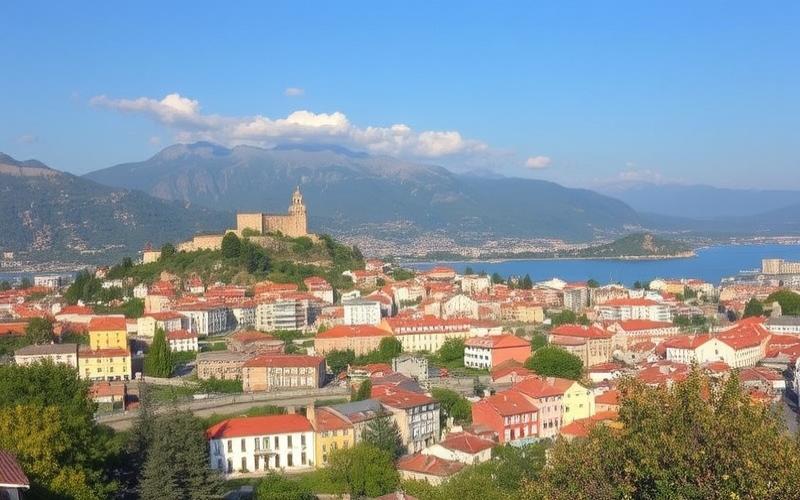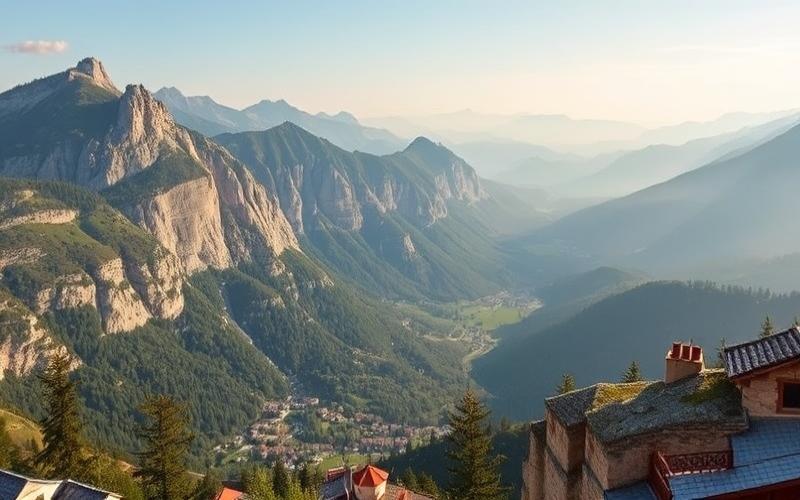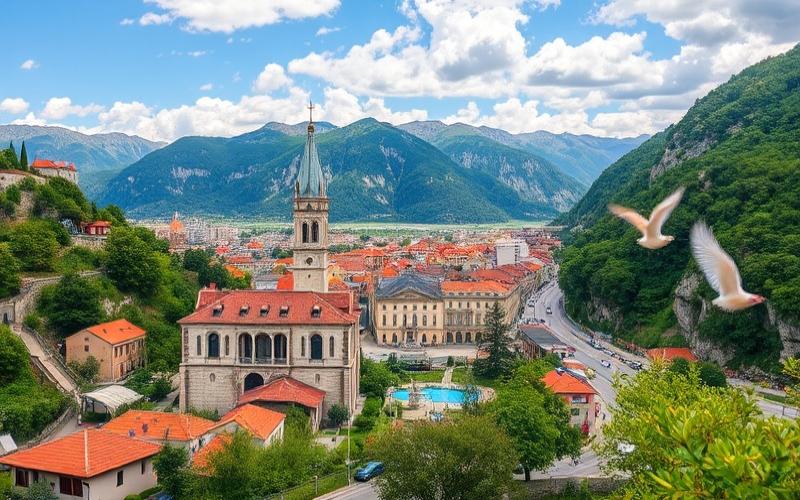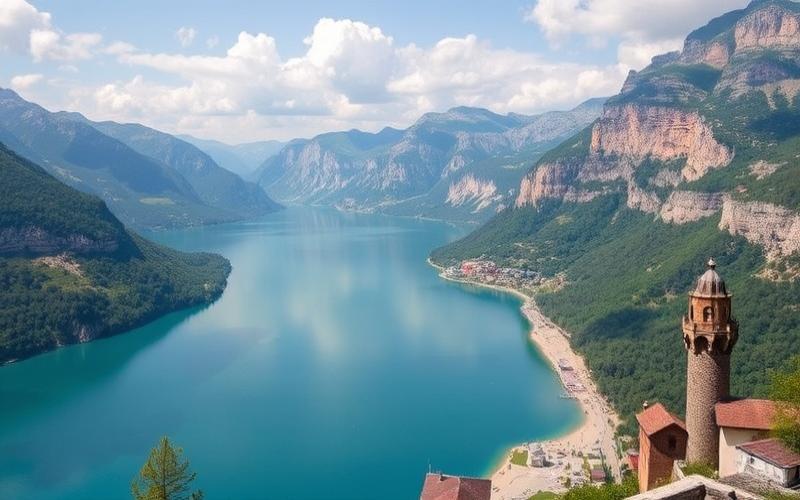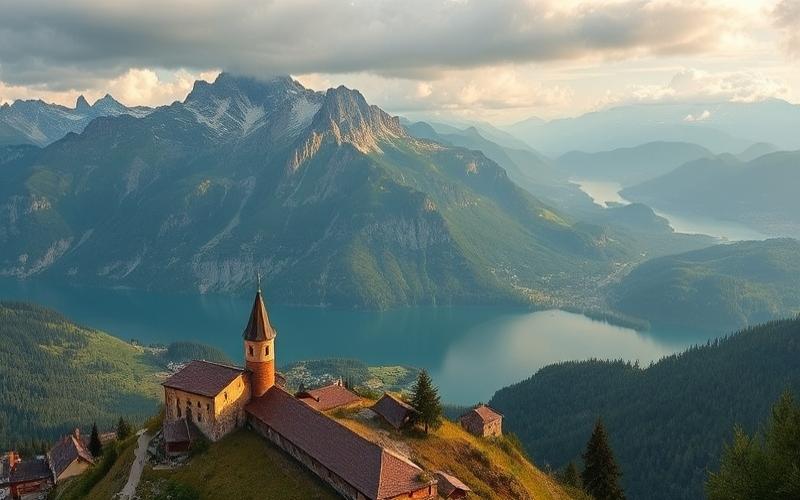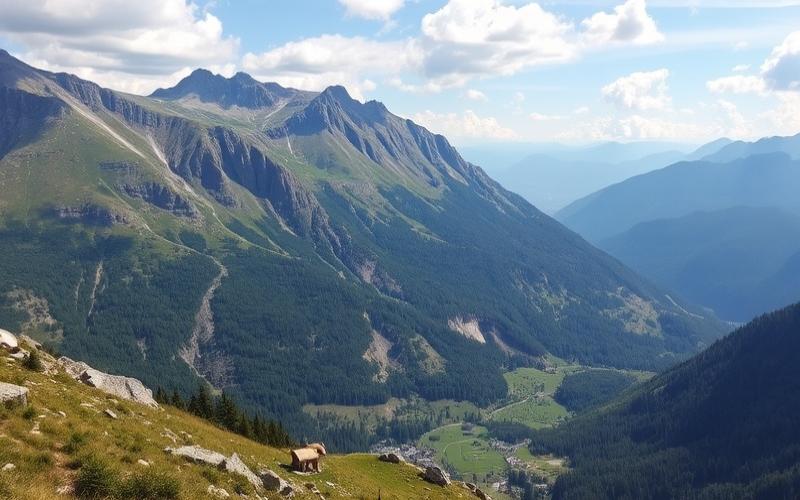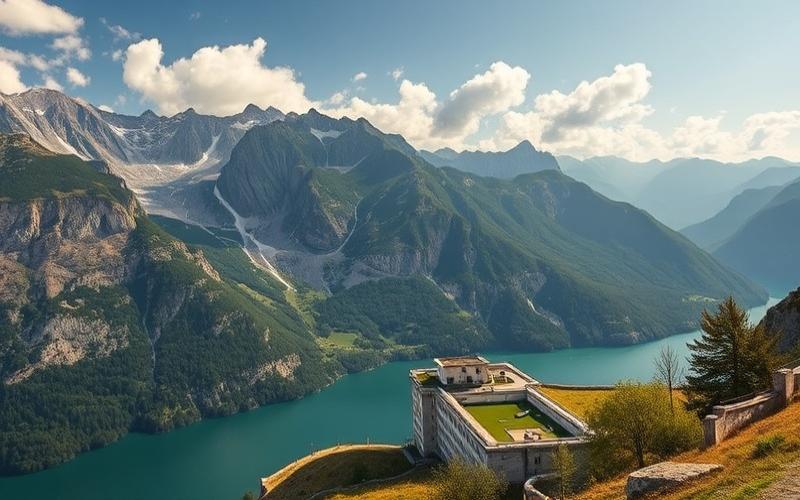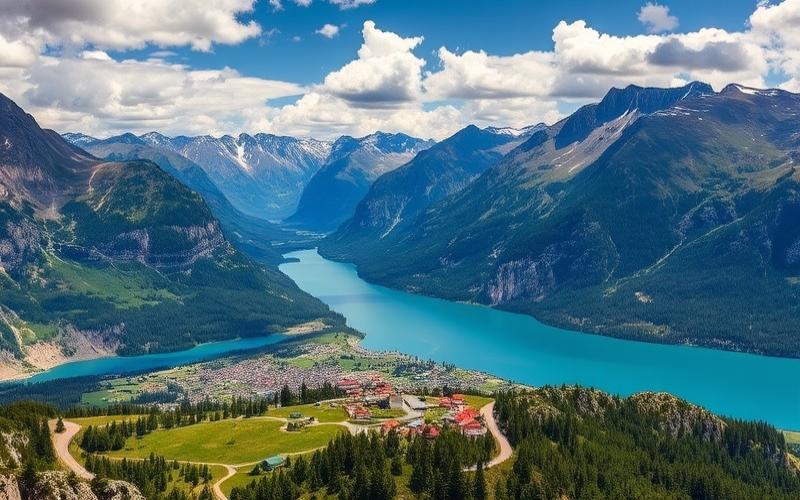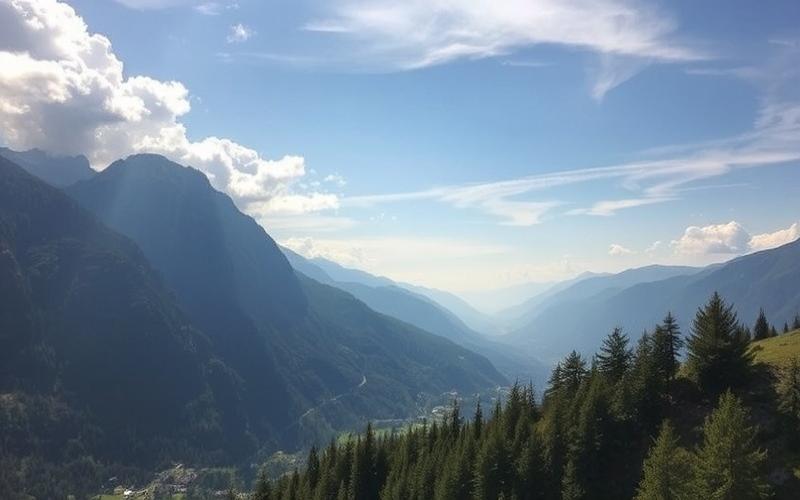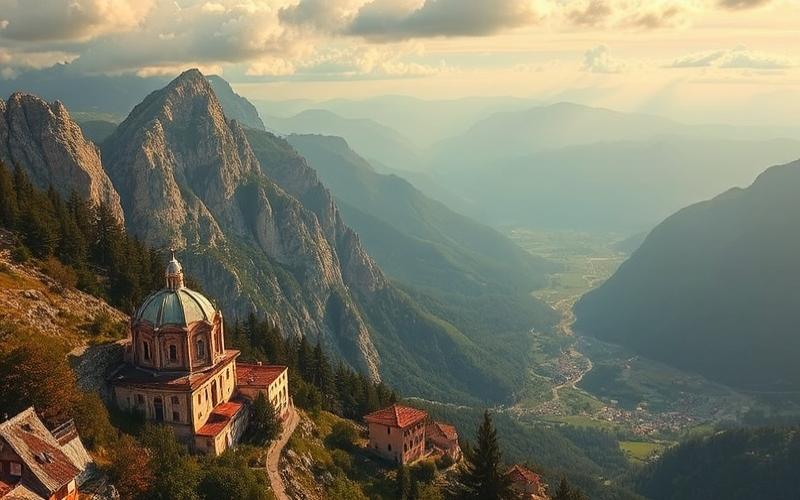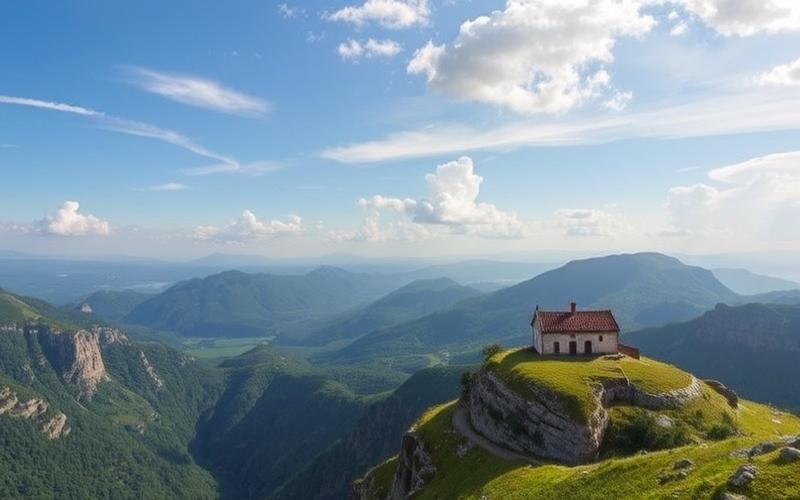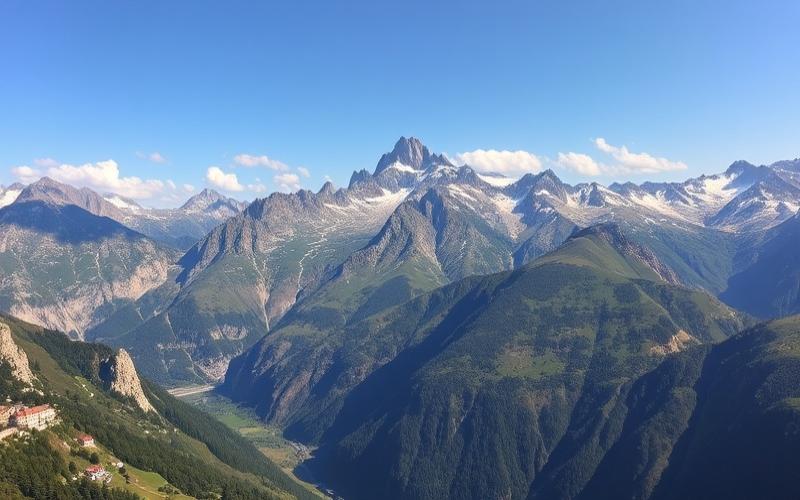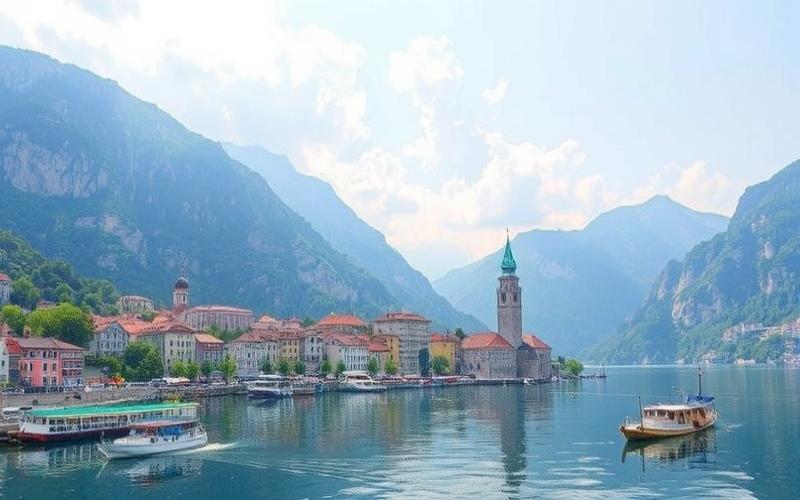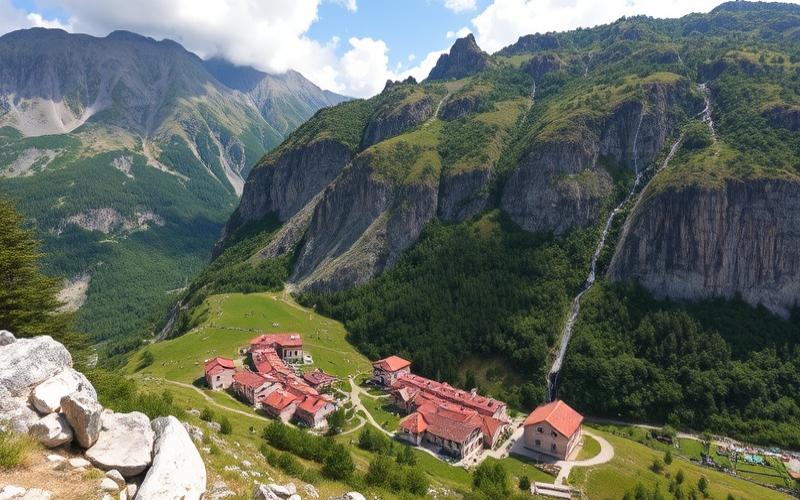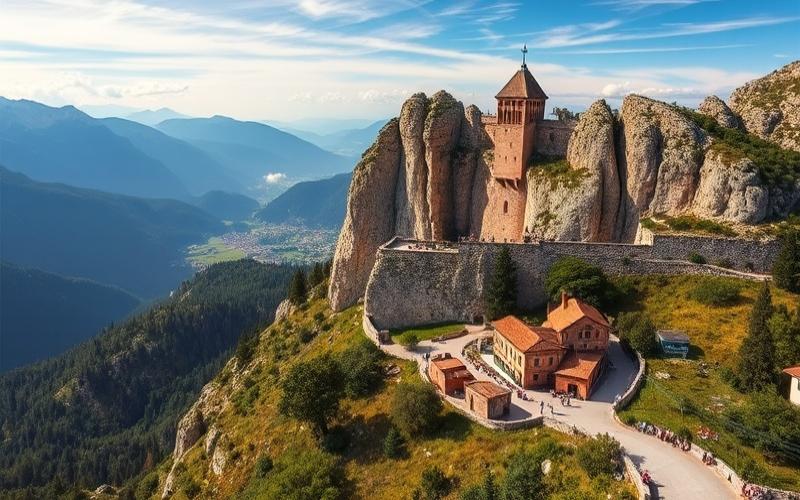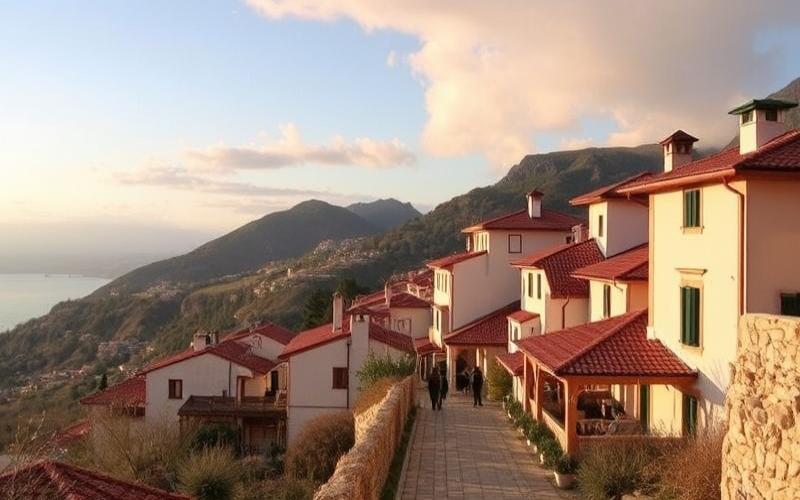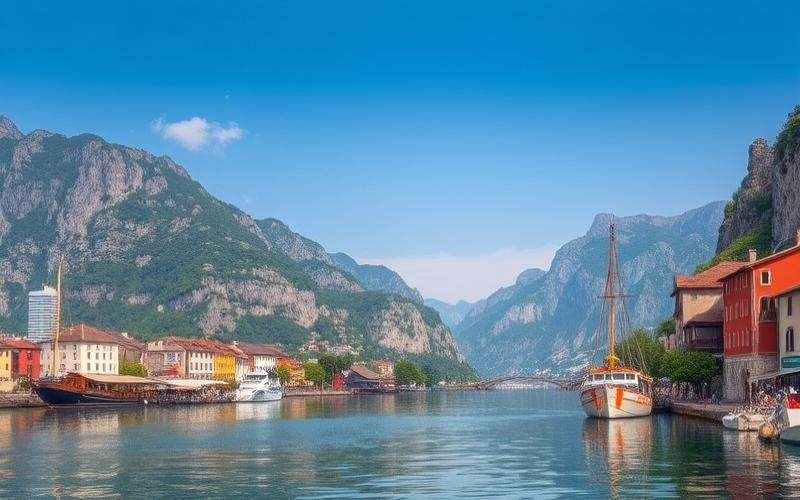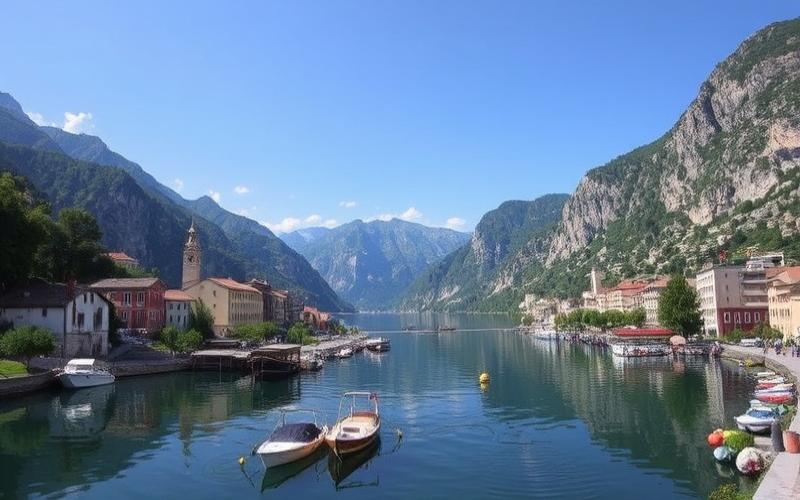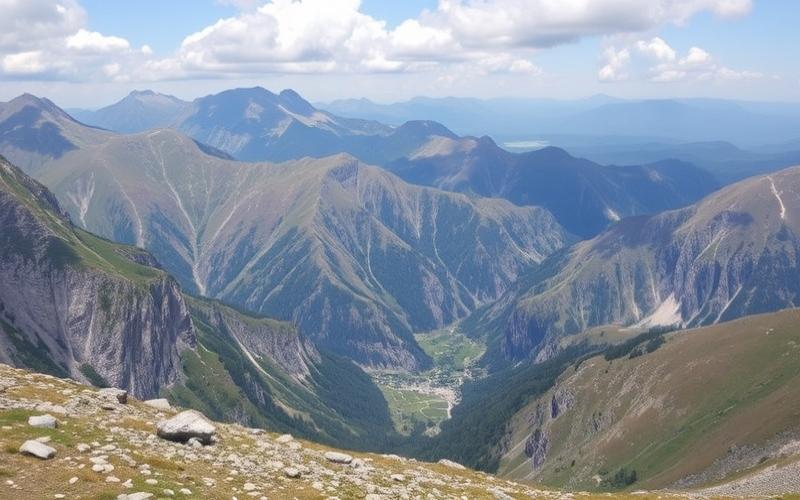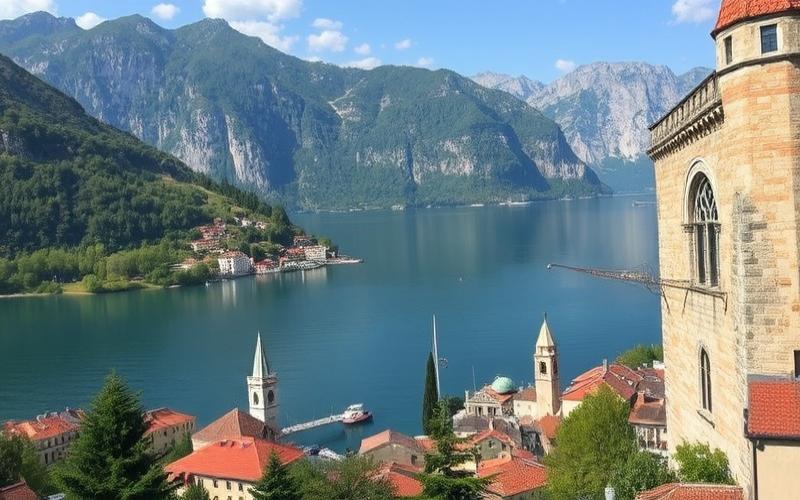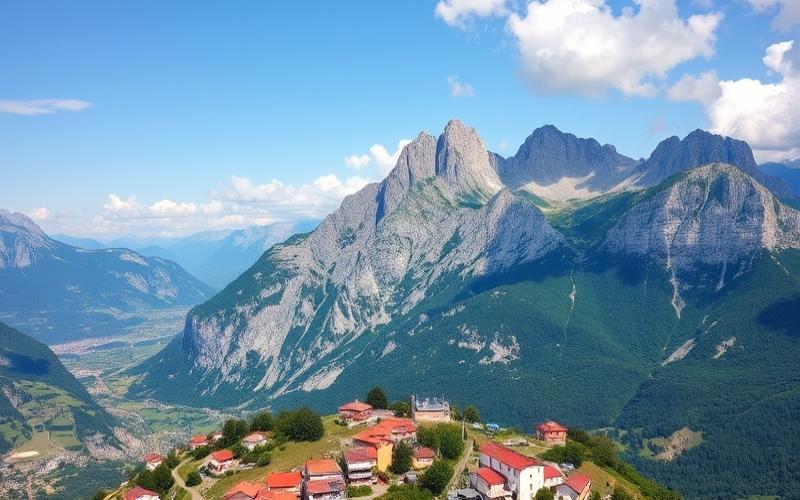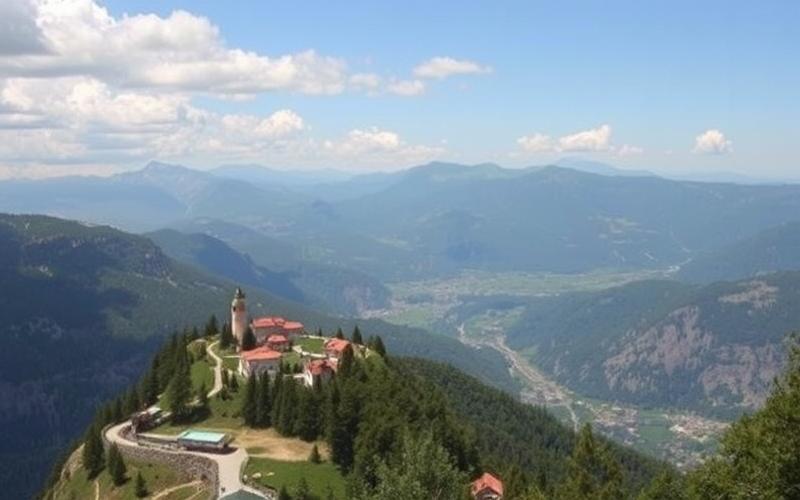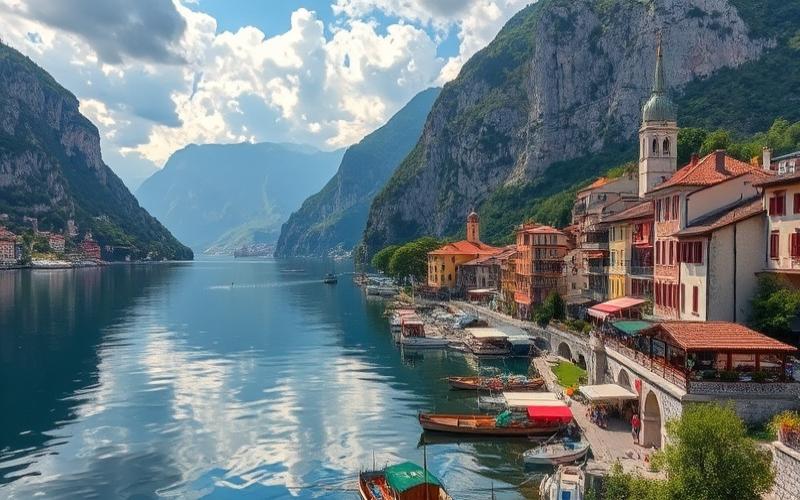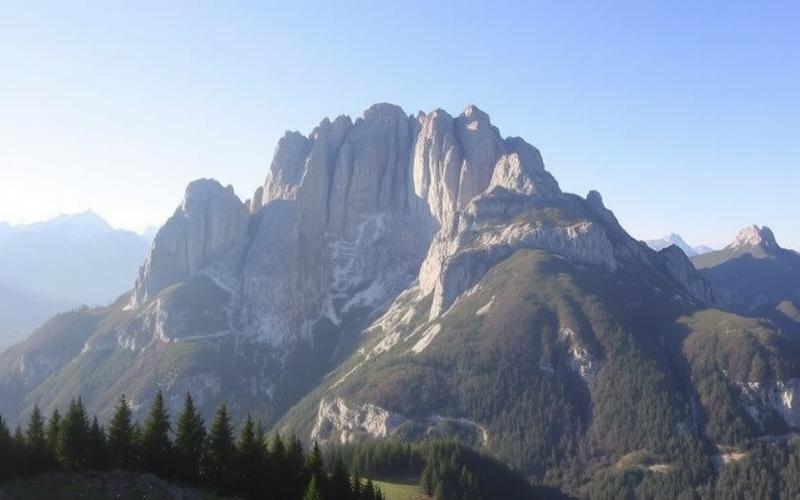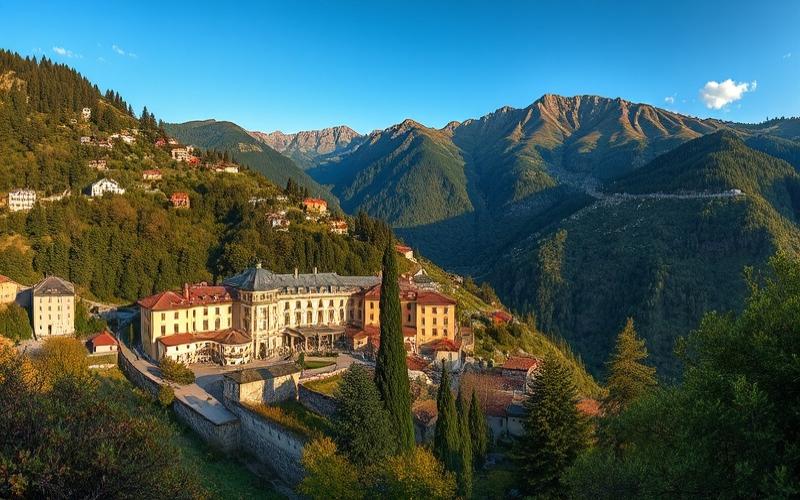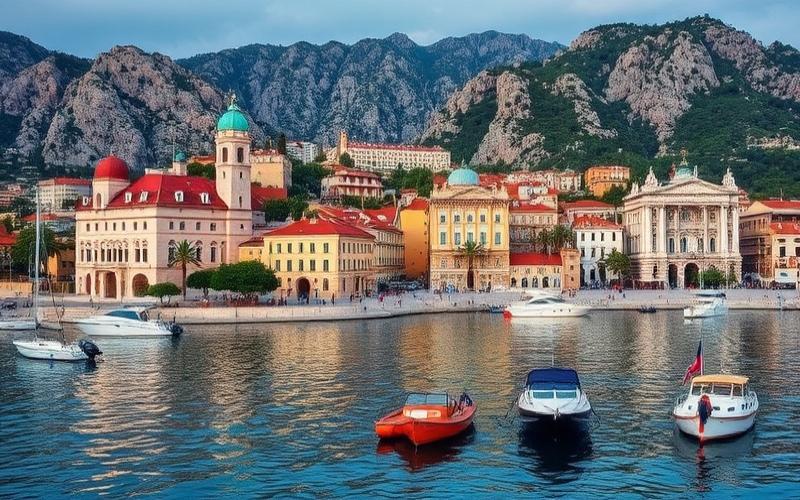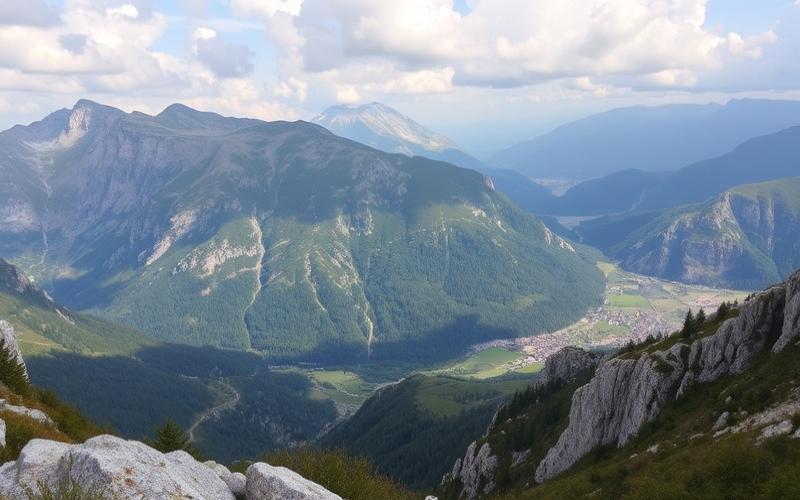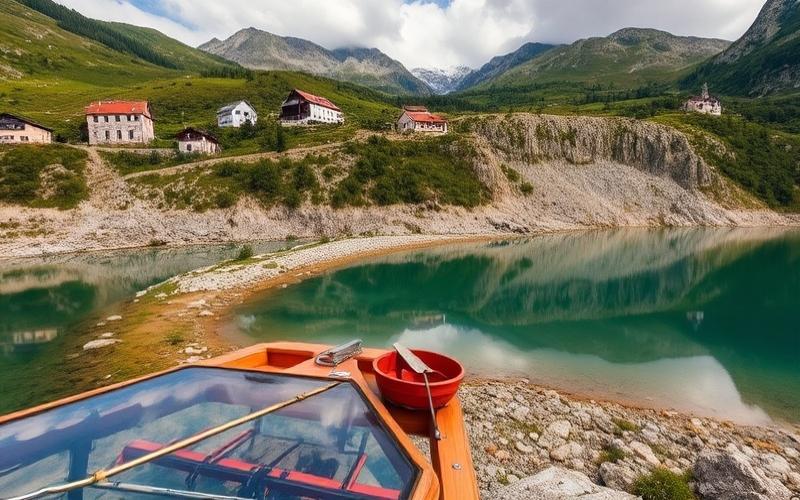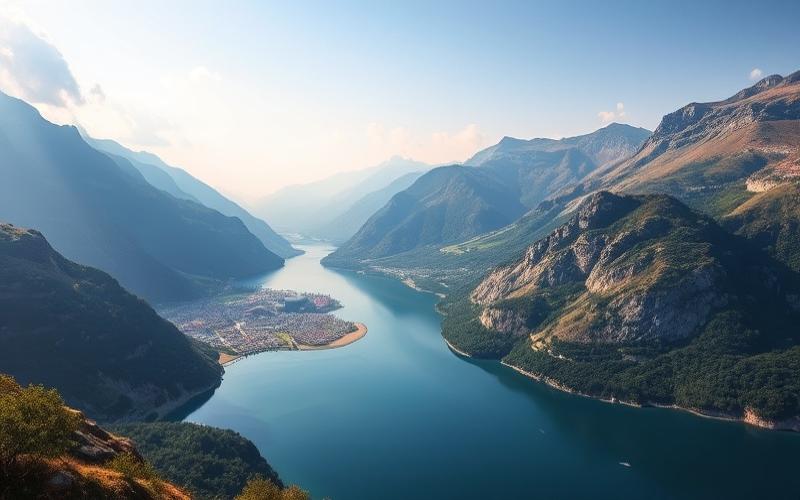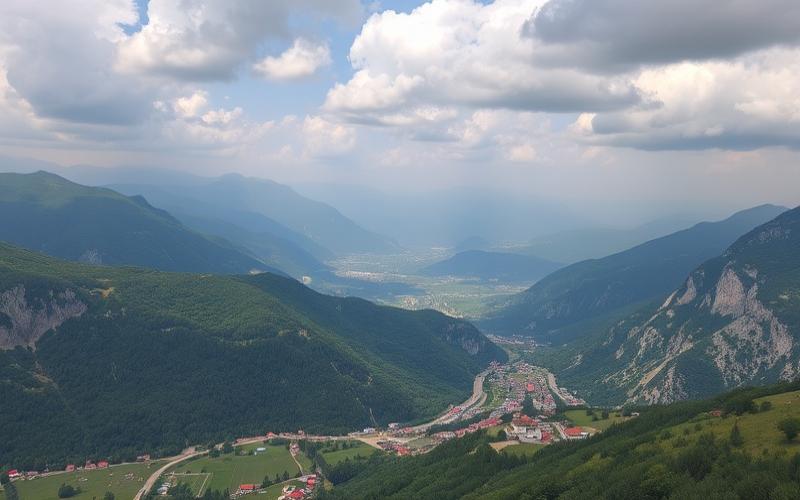
 Published on and written by Cyril Jarnias
Published on and written by Cyril Jarnias
Montenegro, a small Balkan country bordered by the Adriatic Sea, is attracting increasing numbers of foreign investors thanks to its idyllic setting, affordable cost of living, and attractive real estate opportunities. Whether you dream of a vacation home on the coast or a rental investment in the capital Podgorica, here’s everything you need to know about the property purchasing process in Montenegro as a foreigner.
A Real Estate Market Open to Foreigners
Good news: Montenegro allows foreigners to purchase real estate with full ownership rights. Unlike some countries that impose restrictions, Montenegro’s real estate market is completely open to international investors. You can therefore acquire an apartment, house, or even land in your own name, without needing to go through a local company.
This open policy reflects the government’s desire to attract foreign investment to boost the country’s economy. Montenegro is particularly focusing on developing luxury tourism, with the construction of high-end hotel complexes on the Adriatic coast.
Purchasing property can even pave the way for obtaining a residence permit in Montenegro. Indeed, foreign property owners can apply for a temporary residence permit, renewable annually. This is a significant advantage if you’re considering spending time in the country.
Good to know:
Foreigners can freely purchase real estate in Montenegro and obtain a temporary residence permit as property owners.
Key Steps in the Property Purchase Process
The purchasing process in Montenegro involves several important steps:
1. Property Search
Start by defining your criteria (property type, location, budget) and enlist a local real estate agency to assist with your search. It’s highly recommended to work with an agent who speaks English or French to facilitate communication.
2. Viewing and Negotiation
Once you’ve identified an interesting property, arrange an on-site visit. Don’t hesitate to negotiate the price, especially if renovations are needed. In Montenegro, it’s common to negotiate between 5% and 10% off the listed price.
3. Signing the Preliminary Sales Agreement
If you decide to proceed, you’ll sign a preliminary sales agreement (predugovor) with the seller. This document sets the terms of the sale and typically requires a 10% deposit of the purchase price.
4. Legal Checks
Hire a local attorney to conduct all necessary property checks: title deed, potential mortgages, urban planning compliance, etc. This step is crucial to secure your purchase.
5. Signing the Final Sales Deed
The final sales deed (kupoprodajni ugovor) is signed before a Montenegrin notary. The remaining balance is paid at this time. The notary will then handle registering the property transfer with the cadastre.
6. Obtaining the Title Deed
A few weeks after signing, you’ll receive your official title deed (list nepokretnosti) confirming you as the new property owner.
Good to know:
The purchasing process typically takes between 1 and 3 months in Montenegro. It’s recommended to hire local professionals (real estate agent, attorney, notary) to assist you.
Essential Documents for Purchasing
To successfully complete your real estate acquisition in Montenegro, you’ll need to provide several documents:
- Valid passport
- Montenegrin tax identification number (PIB)
- Proof of address in your home country
- Bank statements proving the source of funds
- Power of attorney if you cannot be present for signing
The tax identification number (PIB) is particularly important. It’s mandatory for all real estate transactions in Montenegro. You can easily obtain it from the local tax administration by providing your passport and a copy of the preliminary sales agreement.
All foreign documents must be translated into Montenegrin by a certified translator and apostilled. Therefore, allow extra time for these administrative formalities.
Good to know:
The Montenegrin tax identification number (PIB) is essential for purchasing property in the country. You can obtain it quickly from the local tax administration.
Real Estate Taxation in Montenegro
Montenegro’s tax system is generally advantageous for foreign investors. Here are the main taxes to know:
Property Purchase Tax
Upon acquisition, you must pay a property transfer tax of 3% of the purchase price. This tax is the buyer’s responsibility and must be paid within 15 days of signing the sales deed.
Annual Property Tax
As a property owner, you’ll be liable for an annual property tax ranging between 0.25% and 1% of the property’s value, depending on the municipality. Secondary residences are typically taxed at the highest rate.
Rental Income Tax
If you rent out your property, rental income will be taxed at a rate of 9%. This is one of the lowest rates in Europe, making rental investment particularly attractive in Montenegro.
Capital Gains Tax
Upon resale, capital gains are taxed at a rate of 9%. However, if you’ve owned the property for more than 3 years, you benefit from a full exemption.
International Taxation
Montenegro has signed tax treaties with many countries, including France, to avoid double taxation. Check with a tax advisor regarding implications in your country of residence.
Good to know:
Real estate taxation in Montenegro is generally advantageous, with low tax rates and attractive exemptions for long-term investors.
Specific Rules for Foreigners
Although the real estate market is open to foreigners, some specific rules apply:
Restriction on Purchasing Agricultural Land
Foreigners cannot directly purchase agricultural land in Montenegro. To bypass this restriction, you can establish a Montenegrin company that can then acquire the land.
Authorization for Historical Properties
Purchasing a property classified as a historical monument requires prior authorization from the Ministry of Culture. The process can take several months.
Land Area Limit
Foreigners can purchase buildable land, but the area is limited to 5,000 m² per person. To acquire a larger area, you’ll again need to go through a local company.
Reporting Obligation
Any property purchase by a foreigner must be reported to the Central Bank of Montenegro within 30 days. This formality is typically handled by the notary.
Good to know:
Although the market is open to foreigners, certain restrictions apply, particularly for purchasing agricultural land or large areas. Establishing a local company can help bypass these limitations.
Most Sought-After Investment Areas
Montenegro’s real estate market offers varied opportunities depending on your investment goals:
The Adriatic Coast
This is the most sought-after area, particularly for secondary residences and tourism investment. The cities of Budva, Kotor, and Tivat especially attract foreign buyers with their beaches, historical heritage, and luxury marinas.
The Capital Podgorica
The capital’s market is dynamic, driven by sustained rental demand. It’s a good choice for long-term rental investment, with attractive returns.
Ski Resorts
Resorts like Kolašin or Žabljak offer interesting opportunities for tourism investment, with significant development potential.
Secondary Cities
Cities like Bar or Herceg Novi offer more affordable prices while providing good medium-term capital gains potential.
Good to know:
The Adriatic coast remains the most sought-after area for foreign investors, but other regions like the capital Podgorica or ski resorts also offer interesting opportunities.
Pitfalls to Avoid
Despite an overall favorable framework, some points require vigilance:
Carefully Check Title Deeds
Montenegro’s cadastre is not always up to date, particularly in rural areas. Thorough verification of title deeds is essential to avoid unpleasant surprises.
Beware of Illegal Constructions
Many constructions were built without permits, especially along the coast. Ensure the property’s compliance before purchasing to avoid future problems.
Don’t Neglect the Property’s Condition
Many properties require significant work. Have a complete technical inspection done and include renovation costs in your budget.
Be Wary of Overly Attractive Offers
Some sellers may be tempted to underdeclare the sale price to reduce taxes. This is illegal and risky for the buyer in case of resale.
Good to know:
Thorough due diligence is essential before any property purchase in Montenegro. Work with trusted local professionals to secure your investment.
Montenegro Real Estate Market Outlook
Montenegro’s real estate market offers interesting prospects for the coming years:
A Growing Market
Property prices have increased by an average of 5-7% annually in recent years, with peaks of 10-15% in the most sought-after areas like Budva or Tivat. This trend is expected to continue, driven by foreign demand and the country’s tourism development.
Attractive Rental Yields
Gross rental yields can reach 6-8% in major cities, and up to 10-12% for seasonal rentals on the coast. This is significantly higher than what’s available in most Western European countries.
Significant Development Potential
Montenegro is betting on high-end tourism for development. Many large-scale projects are underway, such as the Porto Montenegro complex in Tivat or the future One&Only Portonovi resort. These developments should boost the real estate market.
EU Accession on the Horizon
Montenegro is a candidate for European Union accession, with an integration target around 2025-2027. This prospect is a stability factor and could further enhance the country’s attractiveness to foreign investors.
Good to know:
Montenegro’s real estate market offers good medium-term capital gains potential, driven by the country’s tourism development and EU accession prospects. Rental yields are particularly attractive compared to other European destinations.
Disclaimer: The information provided on this website is for informational purposes only and does not constitute financial, legal, or professional advice. We encourage you to consult qualified experts before making any investment, real estate, or expatriation decisions. Although we strive to maintain up-to-date and accurate information, we do not guarantee the completeness, accuracy, or timeliness of the proposed content. As investment and expatriation involve risks, we disclaim any liability for potential losses or damages arising from the use of this site. Your use of this site confirms your acceptance of these terms and your understanding of the associated risks.

